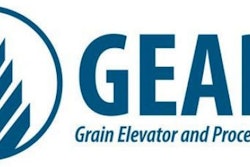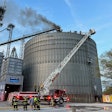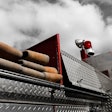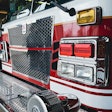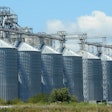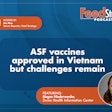
The American Society of Safety Professionals (ASSP) has developednew policy statementson anticipated federal standards related to heat stress and COVID-19 as it aims to inform government officials and key stakeholders in improving the regulatory approach to workplace safety and health.
In September, the White House announced the U.S. Occupational Safety and Health Administration (OSHA) will take action to address extreme heat exposure and develop an emergency temporary standard related to COVID-19.
Heat stress is a well-known and largely preventable hazard both indoors and outdoors, and ASSP has long supported the development of a standard to combat heat-related illnesses. OSHA is developing anational emphasis programon heat inspections and launching a rulemaking process to develop a workplace heat standard.
In addition, the agency is forming a Heat Injury and Illness Prevention Work Group under theNational Advisory Committee on Occupational Safety and Healthto better identify challenges and share best practices to protect workers.
ASSP encourages OSHA to simplify the required implementation process of any new standard and review the regulatory approaches taken by several state-plan states.
ASSP is also working with its A10 Committee for Construction and Demolition Operations to create a voluntary national consensus standard on heat stress management for construction and demolition operations. The new standard will establish minimum requirements for heat illness prevention and hazard management.
Regarding OSHA’s anticipated emergency temporary standard for COVID-19, ASSP believes a workplace risk assessment rather than an arbitrary employee count would best address the need for workers to be vaccinated or tested weekly before coming to work.
ASSP supports risk assessments as the most effective way for employers to tackle safety and health issues. Regardless of workforce size, employers should implement controls to prevent the spread of COVID-19, including contractors with fewer than 100 workers that operate on multiemployer sites.
Throughout the pandemic, ASSP has supported public and private-sector initiatives aimed at stopping the spread of the deadly disease through trusted science and sound technologies. ASSP has published a free technical report,ASSP/ISO TR - 45005-2021, Occupational Health and Safety Management – Safe Working During the COVID-19 Pandemic – General Guidelines for Organizations, registered with the American National Standards Institute. The report details guidelines for organizations on managing risks arising from the pandemic to increase work-related safety, health and well-being. In addition, ASSP has provided freeCOVID-19 contenton its website.
Upon OSHA’s release of its heat stress and COVID-19 initiatives, ASSP will offer technical comments to address additional factors that warrant review. ASSP will also work to keep members and stakeholders up to date.
TheAmerican Society of Safety Professionals (ASSP)maintains data-driven and solutions-based positions on issues that impact occupational safety and health. ASSP is the world’s oldest professional safety organization with 36,000 members around the globe who provide experience-tested recommendations to government and business leaders to advance safety and health in all industries. ASSP also creates alliances with public and private-sector organizations in pursuing that objective.





